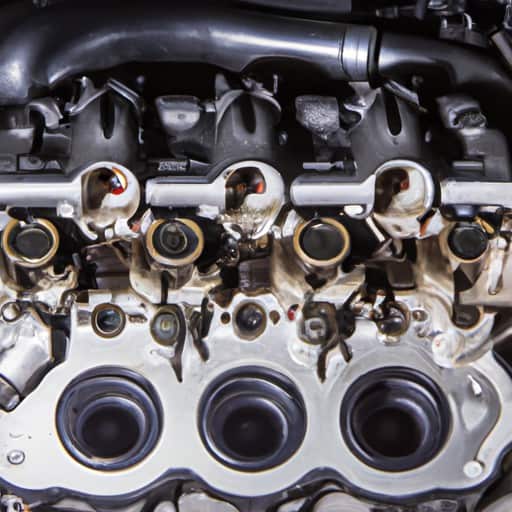This blog post offers valuable auto repair tricks and tips for both professionals and DIY enthusiasts, aiming to help readers save time, money, and frustration when dealing with common car problems.
Why Regular Maintenance Matters: 'An ounce of prevention is worth a pound of cure'
Keeping up with regular maintenance on your vehicle is critical to ensuring its longevity and reducing the likelihood of costly repairs. Here are some key reasons why regular maintenance matters:
- 1. Improved Performance:
Routine maintenance, such as oil changes and tire rotations, can help keep your vehicle running smoothly and efficiently. This can lead to better fuel economy, improved handling, and a more enjoyable driving experience overall. - 2. Preventative Care:
Regular maintenance also allows you to catch small problems before they turn into major issues. For example, if you notice a strange noise coming from your engine, taking your vehicle in for a diagnostic check could reveal a loose belt or worn-out part that can be replaced before it causes further damage. - 3. Increased Safety:
Regular maintenance can also help keep you and your passengers safe on the road. For example, getting your brakes checked regularly can ensure they are in good working order and able to stop your vehicle quickly in an emergency.
A well-maintained engine with clean components, illustrating the importance of regular maintenance
Getting Your Hands Dirty: Simple DIY Repairs Anyone Can Tackle
While some repairs are best left to the professionals, there are plenty of simple maintenance tasks that you can tackle on your own. Here are a few examples:
- 1. Changing Your Oil:
Regular oil changes are essential to keeping your engine running smoothly. Fortunately, this is a relatively straightforward task that you can do yourself with a few basic tools and some new oil. - 2. Replacing Your Air Filter:
A dirty air filter can reduce your vehicle's performance and fuel economy. Replacing it is usually as simple as opening the hood and swapping out the old filter for a new one. - 3. Checking Your Fluid Levels:
Keeping an eye on your vehicle's fluid levels, such as coolant and transmission fluid, can help prevent serious problems down the road. Checking them is usually as simple as popping the hood and using a dipstick or level gauge. - 4. Changing Your Wiper Blades:
Over time, windshield wiper blades can become worn and ineffective. Replacing them is usually as simple as sliding the old ones off and snapping the new ones into place. - 5. Fixing a Flat Tire:
While a flat tire can be a frustrating experience, changing it is something that most people can do with a little practice and the right tools. Make sure you have a spare tire, a jack, and a lug wrench in your vehicle at all times.
When to Call the Pros: Recognizing the Limits of DIY
While there are plenty of repairs and maintenance tasks that you can handle on your own, it's important to know when to call in the professionals. Here are a few situations where it's usually best to leave things to the experts:
- 1. Complex Electrical Repairs:
Modern vehicles are packed with sensors, computers, and other electronic components that can be tricky to diagnose and repair. If you're dealing with a complex electrical problem, it's usually best to take your vehicle to an experienced technician who can diagnose the issue and make the necessary repairs. - 2. Suspension and Steering Issues:
Problems with your vehicle's suspension or steering can be dangerous if not properly addressed. These systems are complex and require specialized tools and knowledge to diagnose and repair. If you're experiencing issues with your suspension or steering, it's usually best to take your vehicle to a qualified mechanic. - 3. Major Engine Repairs:
While changing your oil or replacing your air filter are relatively straightforward tasks, major engine repairs are best left to the professionals. From rebuilding an engine to replacing a transmission, these jobs require specialized knowledge and tools that most people don't have access to.
A professional mechanic diagnosing a complex issue with specialized equipment
Staying Informed: Resources for Ongoing Learning and Improvement
The world of auto repair is constantly evolving, with new technologies and techniques being developed all the time. If you want to stay on top of the latest advances in the field, it's important to seek out resources for ongoing learning and improvement. Here are a few options to consider:
- 1. Online Forums:
There are countless online forums and discussion boards dedicated to auto repair and maintenance. These can be a great resource for getting advice and support from other DIY enthusiasts and industry professionals. - 2. Manufacturer Websites:
Many vehicle manufacturers offer resources and tutorials on their websites, including maintenance schedules, repair manuals, and instructional videos. These can be a great way to learn more about your specific make and model and stay up-to-date on the latest technologies. - 3. Local Trade Schools:
Many trade schools and community colleges offer auto repair courses and workshops. These can be a great way to gain hands-on experience and learn from experienced instructors. - 4. Professional Associations:
There are a number of professional associations for auto technicians and mechanics, including the National Institute for Automotive Service Excellence (ASE) and the Automotive Service Association (ASA). These organizations offer training and certification programs, as well as networking opportunities and industry news. - 5. YouTube Channels:
There are many YouTube channels dedicated to auto repair and maintenance. These can be a fun and engaging way to learn new skills and techniques, and many feature step-by-step tutorials and demonstrations.
By following these auto repair tricks and tips, readers can enhance their understanding of vehicle maintenance, improve their troubleshooting skills, and ultimately keep their cars running smoothly for longer.




